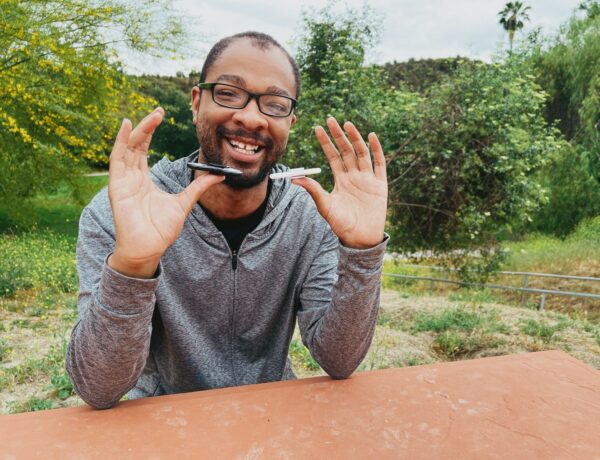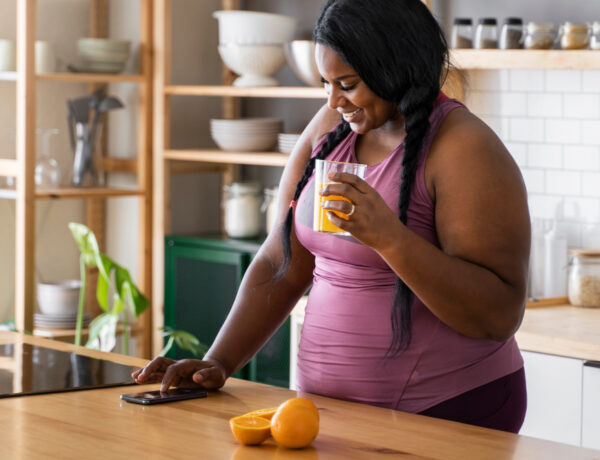Recovering from a brain injury is an incredibly challenging journey, not just for the person that’s been affected by the injury, but also the likes of family and friends who need to support their loved one.
Being there for your loved one is a big part of their recovery, but recovery can be different based upon each person’s needs and estimated timeline of recovery. The nuances of an acquired brain injury can be incredibly varied and have a big impact on things like independence, confidence, self-esteem and more.
So, if a loved one has suffered a brain injury, here are some practical ways in which you can support and aid their independence as they look to regain a sense of normality…
Focus on Personalised Goal Setting
As we’ve mentioned already, each individual is different and recovery rates can vary depending on the type of injury and the progress they’re able to make. Therefore you should work with your loved one to find goals and milestones towards those goals. Focus on how you can support their independence, meaning goals could include the likes of getting dressed alone, preparing simple meals, getting more confident in public spaces or partaking in other day-to-day chores.
It’s important to start small and focus on one task at a time. Break their goals into manageable steps so they feel achievable and the progress being made is visible. What’s more, celebrate that progress too, no matter how small they may seem. It can reinforce that positive approach to recover and keep your loved one motivated to move forward to gain further independence and get closer to that normal life again. If the injury is work-related, involving a workers’ compensation lawyer can help ensure financial support is in place, allowing your loved one to focus fully on their recovery goals.
Establish a Routine
Routine is such a big part of any recovery journey and it’s no different with a brain injury. Brain injuries can disrupt cognitive functions, so you want to reduce any feelings of confusion or make them feel overwhelmed. A routine helps create predictable patterns to a day which can help reduce anxiety as well as aid in tackling regular chores and activities independently.
Create a schedule that is clear, including the likes of meal times, enjoyable activities and then the therapy and rest that is required on the recovery journey. You can even make it a daily checklist for them, so again progress is more visible and your loved one can get that sense of accomplishment from managing their daily routine independently and effectively.
Encourage the Use of Assistive Technologies
These days, technology can make a big difference to someone’s independence following a brain injury. There are tons of apps out there that can help improve the likes of memory, as well as communication and managing day-to-day tasks.
For example, you can use smartphones or tablets to set reminders for medication or utilise things such as voice-activated assistants and communication tools. There are also many brain training games available in app stores which can also have a positive impact on cognitive sharpening, taking just a few minutes per day to complete.
Promote Physical Rehabilitation and Exercise
Physical rehabilitation can play a crucial role in regaining mobility, balance, and coordination. Occupational therapists, physiotherapists, and exercise programmes tailored to brain injury recovery can help your loved one build strength and confidence in their physical abilities. Encourage them to engage in regular physical activity, as even gentle exercises, like walking or stretching, can enhance their independence and boost their mental wellbeing.
If they’re open to it, consider attending some sessions with them, so you understand the exercises they’re working on and can help them practise at home. Physical improvement, however gradual, often goes hand-in-hand with cognitive and emotional gains, providing a holistic boost to their independence.
Alongside physical exercises, it is just as important to keep the brain active. Light mental challenges can help support cognitive recovery and improve focus. A simple option is to play Wordle together. It only takes a few minutes a day and can help keep their minds sharp while building a small, enjoyable daily habit.
Regain Independence with Mobility
A manual wheelchair can significantly boost your loved one’s independence after brain injury, by providing mobility and flexibility they’re able to participate more fully in daily activities and social interactions with greater ease. These unique devices also offer practical solutions for navigating various environments, making them must-have tools of recovery and autonomy. With many wheelchairs for sale, it should be a lot easier for you to find one that meets your loved one’s unique needs and preferences and regain their sense of freedom and confidence.
Foster Social Connections and Community Engagement
Social isolation can be a significant hurdle to independence, especially after a brain injury, as changes in cognitive and social skills may make them feel more self-conscious. Encourage your loved one to reconnect with family, friends, or support groups when they feel ready. Peer support groups for people with brain injuries, available through charities like Headway, offer a supportive environment where they can connect with others who understand their experiences.
Engagement in social activities or volunteering, even in a limited capacity, can help them rebuild social skills and regain confidence. Participating in these activities can encourage a sense of purpose, social fulfillment, and ultimately support their journey towards independence.
Practice Patience and Provide Emotional Support
Recovery from a brain injury is a long-term process, and there may be setbacks along the way. It’s essential to remain patient and compassionate, recognising that progress might come gradually. Keep communication open and supportive, listening to their frustrations or concerns without judgement.
Encourage them to take pride in each accomplishment, no matter how small, and remind them of their progress regularly. Positive reinforcement and gentle encouragement can be more motivating than direct assistance. By offering support that respects their autonomy, you’ll help them build resilience and strengthen their determination to achieve independence.
Read more health articles at ClichéMag.com
Images provided by Deposit Photos, BingAI, Adobe Stock, Unsplash, Pexels, Pixabay & Creative Commons





